

Did you know that a staggering 70% of people are unaware of the everyday liberties they're entitled to? This might sound unbelievable, but our basic freedoms are often overshadowed by misinformation and indifference.
The topic of personal liberties has never been more critical than in today's rapidly changing world. As digital and social landscapes evolve, understanding our rights ensures autonomy and empowerment.
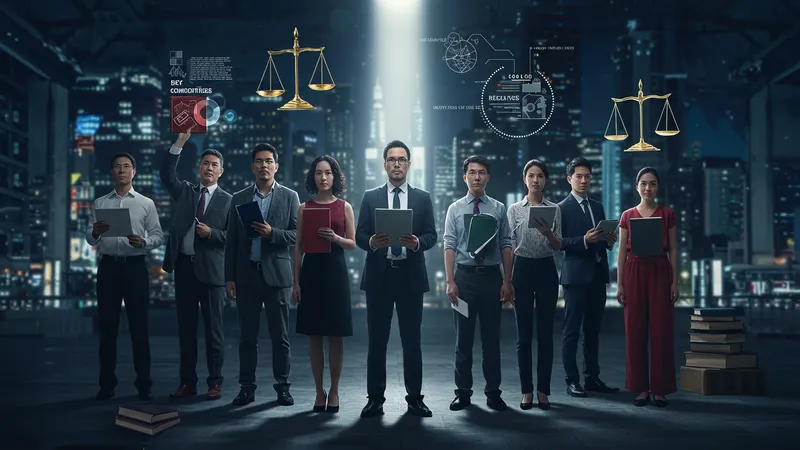
Here's a surprising truth: most people believe they can only exercise their rights when they need to defend themselves in court. However, personal liberties are meant for everyday use, empowering citizens to make informed decisions about their lives, work, and communities. Imagine that every routine aspect of life—from accessing public spaces to choosing your communication style—is protected under the cloak of these rights. But that's not even the wildest part...
Historically, campaigns for civil rights showcased the power of unity in challenging the status quo and reforming laws that seemed invincible. Yet, many rights activists argue we are still at the beginning of this journey. Every year, tens of thousands of unprecedented cases highlight how liberties are silently curbed worldwide, oftentimes unnoticed. This narrative isn't just to fuel fear, but to reflect on what remains unaddressed. What happens next shocked even the experts…
While many of us feel we are well-versed in our rights, the truth is that hidden liberties exist within the fabric of our society that we rarely recognize. For instance, the right to digital privacy—a right that's becoming increasingly crucial in our tech-driven world—is often taken for granted. With algorithms tracking our every move online, understanding our privacy rights can fundamentally shift our digital engagement. But there’s one more twist…
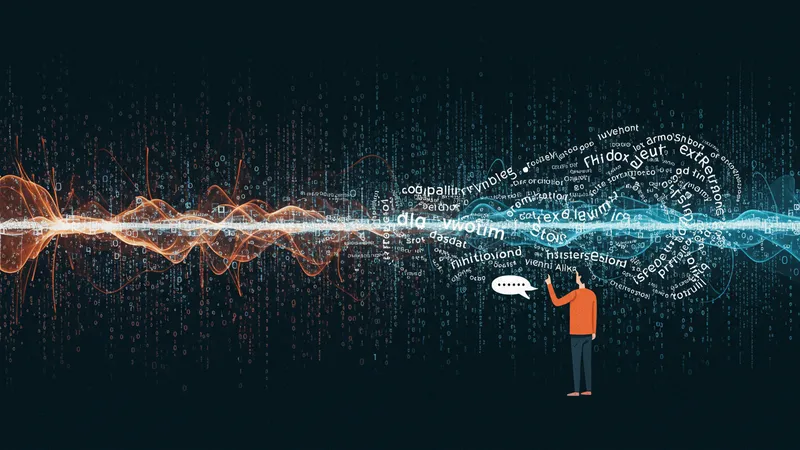
The concept of freedom of expression goes deeper than we imagine. It's not just about speaking up; it's about crafting our narratives, unshackled by societal pressures or governmental scrutiny. Even the right to satire, which might seem mundane, is a crucial pillar of this liberty. Interestingly, this opens up a sphere that not only entertains but educates and showcases the power of humor in advocacy.
Let's delve deeper into the workplace liberties. Many are unaware that they have the right to a work-life balance even in seemingly inflexible industries. Laws in several countries now demand employers accommodate this, promoting mental well-being and productivity. Surprised? Workplace reform is accelerating, but the conversation is far from complete.
In traveling, your rights extend beyond simple passage. The liberties include knowledge about customs practices, access to interpreters, and anti-discrimination measures across borders. These often-overlooked rights can significantly enhance travel experiences, ensuring safety and dignity on a global scale. But more untold facets await…
As we move deeper into the digital age, our liberties are undergoing a massive transformation. Take the right to be forgotten—a revolutionary idea born from the need to shield our online identities from perpetual public scrutiny. In countries that embrace this, individuals can now request the erasure of certain digital traces. However, this principle is sparking debates about censorship and free speech online.
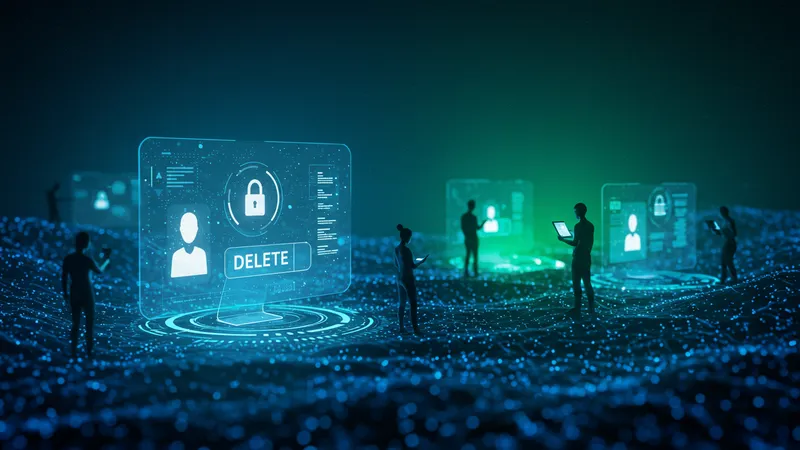
Our digital rights are part of a larger metamorphosis that includes digital inclusion. Ensuring access to the internet and digital resources isn't just about convenience; it's about ensuring equal participation in our increasingly digital world. This has profound implications for education, commerce, and even health, impacting millions globally.
Content ownership is another realm where hidden rights are misunderstood. Most internet users don't realize the power they hold over their own creative content online. The internet is a vast canvas where artists and content creators should wield rights over their work, ensuring they receive due credit and compensation rather than fall prey to digital pirates.
The revolution doesn't end with expression or identity, though. Accessibility rights are also evolving, allowing those with disabilities to bridge gaps in the digital divide. Innovations in tech offer unprecedented autonomy—tools enabling better communication, navigation, and integration into the digital economy. This new wave redefines inclusivity and liberation. But what you read next might change how you see this forever.
Everyday liberties exist in more places than we realize. Consider the right to consumer knowledge, for example. Most don't comprehend the extent to which they can demand transparency from brands regarding product sourcing and environmental impact. This liberty empowers consumers to make informed choices that align with their values.
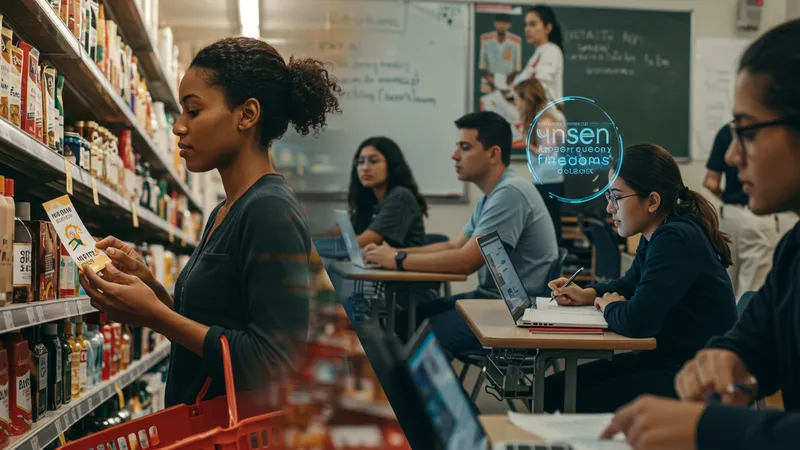
In education, the right to information is pivotal. Students globally are leveraging access to knowledge like never before. This encompasses understanding educational resources, rights to inclusive environments, and opportunities for feedback. By engaging with and activating their rights, students can shape their learning environments radically.
Healthcare rights are another area where liberties flourish. On top of receiving quality care, individuals have rights to informed consent and second opinions on medical treatments, thus influencing outcomes directly. Informed patients can navigate the healthcare system more effectively, ensuring treatments align with their needs and values.
Furthermore, financial liberties are expanding. Understanding the freedom to equitable banking access, transparent fees, and credit rights allows people to take control over their economic futures. This knowledge fosters financial literacy and empowerment—a small step toward tackling inequality on the economic battlefield. But there’s more to unfold...
Redefining civic engagement as a liberty means acknowledging our roles not only as contributors to society but as watchdogs as well. Public participation rights empower citizens to voice concerns and hold leadership accountable, ensuring that democracy remains vibrant and adaptive.
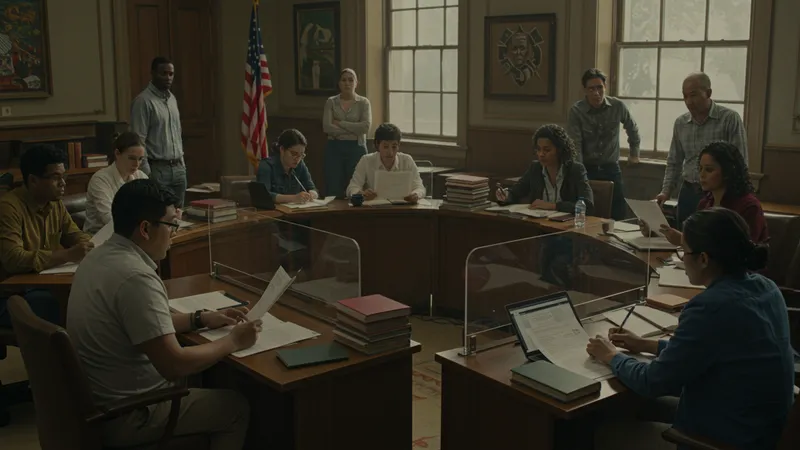
The fight for transparency acts as an extension of this liberty. Access to governmental records and decision-making processes empowers citizens to engage deeply in their communities, keeping systems checkered and progressive. Transparency isn’t just about disclosure; it’s about co-creating the sociopolitical landscape.
In political landscapes, electoral rights extend beyond mere voting. Understanding how to initiate referendums or propose legislation demystifies governmental processes, enabling everyday visionaries to transform broad civic visions into tangible policy changes. This moves society closer to genuine representation.
Finally, the liberty of peaceful assembly, entwined with digital advocacy platforms, offers ways to manifest civic ideals beyond marches and posters. Online communities are orchestrating meaningful campaigns, influencing critical decisions at top political echelons. This synergy of technology and activism reimagines participatory governance. But there's another surprising layer involved…
The realm of family and personal life sees an array of liberties that are often unexplored yet crucial. One such right is the freedom in family planning—a liberty intertwined with profound implications for personal and societal well-being. Access to comprehensive reproductive health services and education is central to this narrative.
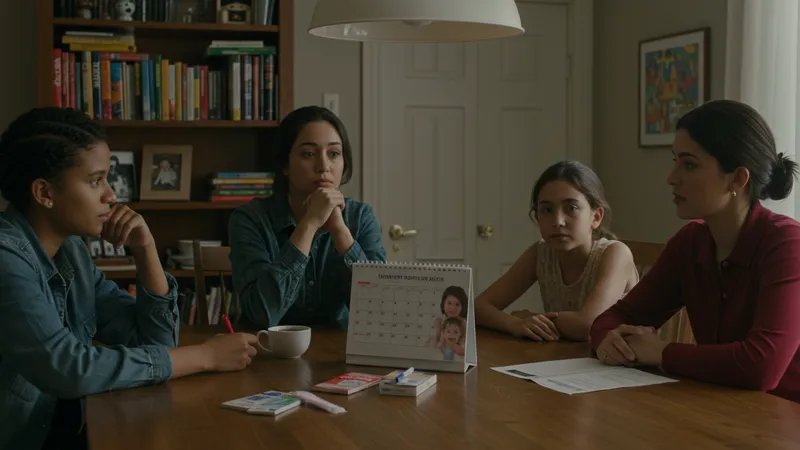
Parental rights also come into play, ensuring autonomy over educational choices and instilling values within the family unit, all under the guidance of cultural and ethical standards. These rights protect families from undue interference, establishing a safe space where future generations learn and thrive.
Another under-recognized liberty is the right to safety in the domestic sphere. Legal frameworks are emerging globally to address domestic violence more robustly, reinforcing the liberty to personal safety and dignity within households. This marks a critical evolution in how family life is safeguarded.
On the flip side, the right to privacy within familial relationships fosters trust and supports personal freedom. This includes everything from digital communication to decision-making, striving to balance openness with respect for individual autonomy. But the dynamics of these liberties continue to evolve, holding more revelations...
Education has long been a battleground for defending and expanding liberties. The right to education extends beyond basic literacy, delving into equitable access, specialized curriculums, and inclusive practices that cater to diverse learning needs. This ensures all students have the chance to excel.
Beyond infrastructure, academic freedom is fiercely guarded as a means to foster creativity and critical thinking. Teachers and students alike benefit when they can explore ideas without fear of retribution, thus propelling educational institutions to new heights of innovation and inclusivity.
Access to information remains pivotal, especially in a world brimming with both valuable knowledge and misleading content. Libraries and online resources play a crucial role in ensuring learners have accurate, unbiased information. This opens doors to informed questioning and knowledge sharing.
Moreover, lifelong learning is increasingly recognized as a liberty, emphasizing continued growth and adaptation in a rapidly changing world. This notion overturns the traditional education timeline, advocating for opportunities to reskill and upskill throughout life. But, as compelling as it sounds, the journey has complexities yet to be addressed...
In today's world, economic empowerment is a crucial liberty that extends beyond mere financial independence. We're talking about equitable access to economic opportunities, breaking down systemic barriers that marginalize certain groups. This liberty ensures equal participation in the marketplace.
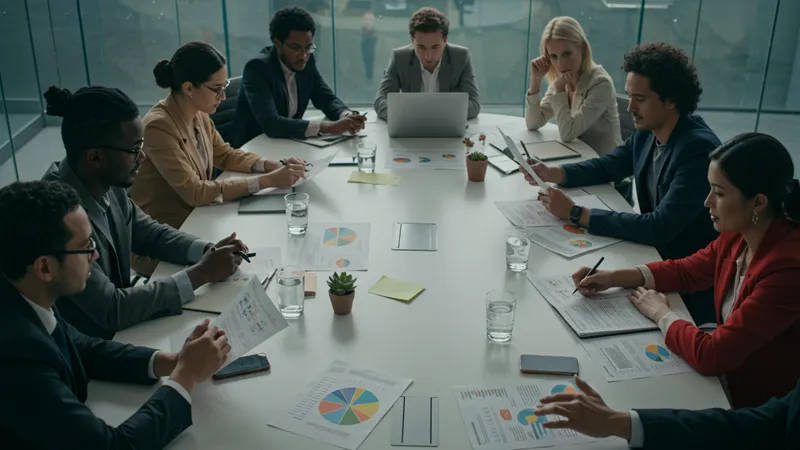
Central to this is the right to fair wages, a battle fought on numerous fronts globally as disparities persist. Securing this liberty demands transparent practices, living wages, and ongoing negotiations between employers and employees to achieve sustainable balance and progress.
The liberty to entrepreneurial opportunities also plays a role, where innovation and creation are encouraged without an oppressive regulatory weight. This path is marked by the rights to property, patent protections, and supportive financial systems that nurture entrepreneurial aspirations.
Access to financial education is another key aspect, equipping people with the knowledge to make informed decisions, balancing risks with opportunities. This literacy can break cycles of poverty and lead to generational wealth creation. But, like every great story of liberation, there might be surprises waiting around the corner...
Health rights stretch far beyond emergency room visits, encompassing a mosaic of liberties that ensure equitable access to healthcare services. This includes preventive care, mental health services, and integrative approaches that consider the whole individual in their social context.
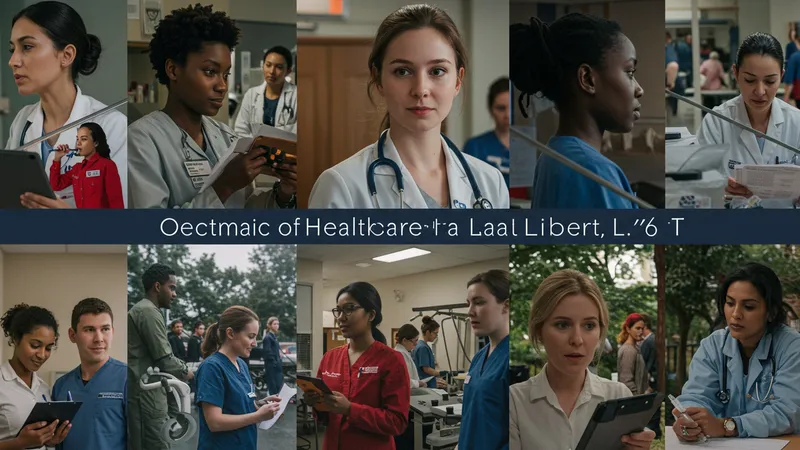
Central to this is the liberty to patient advocacy. Knowledge of treatment options and the power to make informed decisions fosters an environment where patients partner with providers, asserting more control over their health trajectories. Information champions autonomous care.
Telehealth has emerged as a crucial development, exemplifying how liberties are expanding in the digital sphere. Remote consultations aren't just a convenience; they ensure ongoing care for patients with mobility or geographic restrictions. This is a game changer in health equity.
Mental health liberties focus on the rights to access services without stigma and to confidential care safeguarding dignity and respect. As cultural attitudes evolve, society must strive for a comprehensive approach that normalizes mental health conversations alongside physical health. But we’re just scratching the surface of true healthcare reformation…
Belonging to a community isn't a mere act of existences; it's a right laced with intricate liberties that ensure collective and individual well-being. Communities now emphasize the liberty of safe spaces, fostering environments where individuals can share experiences free from discrimination or domination.
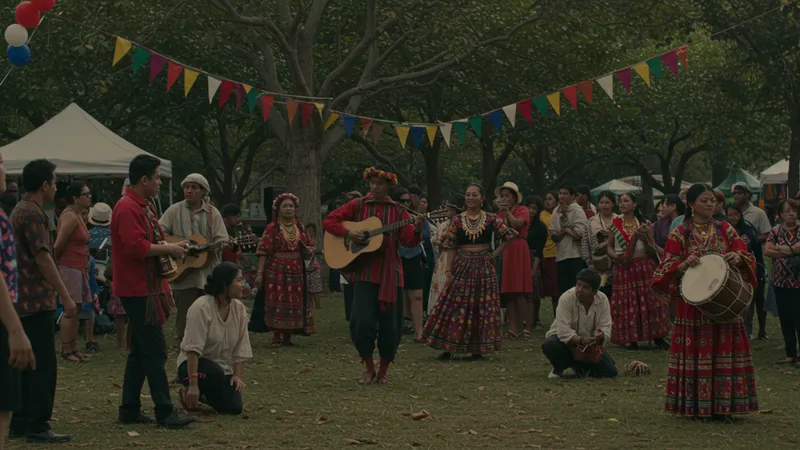
Cultural liberties champion diversity, promoting the freedom to preserve heritage, languages, and traditions within broader societal frameworks. This unity in diversity strengthens community bonds and celebrates the mosaic of human cultural richness.
Environmental liberties are also critical, empowering communities to participate in decision-making about their natural surroundings. These rights enable people to protest harmful projects, promote sustainability, and engage in actions that secure ecological futures.
Finally, the liberty to collective bargaining encourages communities to strive for shared goals, ranging from improved local governance to enhanced public services. The power to voice and act collectively lays the groundwork for democratic, empowering, and vibrant community structures. The implications are mesmerizingly profound…
Liberties transcending borders transform how we experience globalization. The right to asylum is a critical aspect, ensuring that those fleeing persecution have the right to refuge and fair treatment. This global liberty underscores humanity's commitment to protecting the vulnerable.
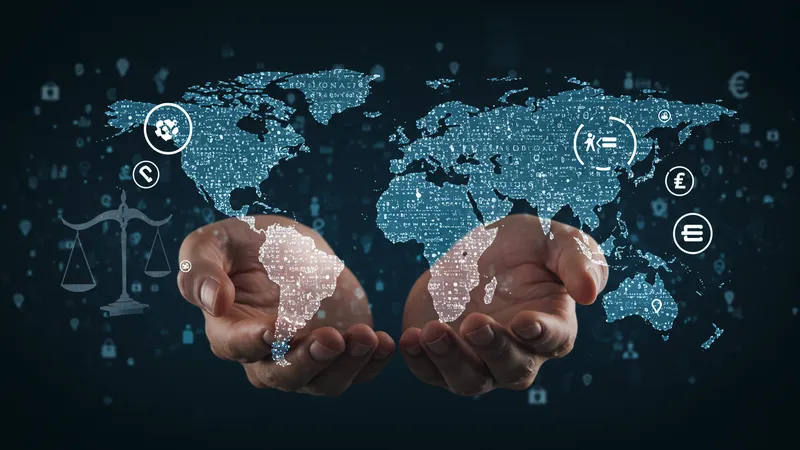
Economic globalization introduces liberties linked to fair trade, ensuring that international commerce doesn't infringe on national sovereignties or exploit local populations. Here, balance is key, as trade policies must navigate both global prosperity and equitable development.
Labor rights on a global scale demand fair treatment for migrant workers, transparency in international hiring processes, and enforcement of equitable labor standards. Protecting these rights fosters dignity and reduces exploitation across countries.
The liberty to global education means students can now cross physical and virtual borders in their quest for knowledge. Scholarships, exchanges, and diverse learning communities create a world where education truly is a universal right. Globally, these liberties weave a tapestry that profoundly shapes our shared human experience…
The liberties of youth empower the world's future architects, advocates, and leaders. Critically, education and participation rights ensure that youth voices resonate within society, opening channels for influence and change.
Young people have the liberty to a fair youth justice system that emphasizes rehabilitation and growth rather than punishment. By prioritizing supportive environments at this crucial developmental stage, society crafts a framework where future generations lean toward innovation and compassion.
Moreover, the liberty to participate in civic engagement allows youth to contribute authentic perspectives to discourses that shape their own and society's future. Encouraging activism and movements initiated by youth is a hallmark of dynamic cultural evolution.
Technical literacy is a liberty that ensures youth access the tools they need to thrive in an increasingly digital world. Emphasizing universal digital education stokes youth aspirations into tangible innovations. Yet, these prospects continue to evolve as technology advances...
The creative domain is fueled by liberties that underscore the freedom of expression through art. This allows creators to challenge norms and inspire change through their distinct voices and visions. Such liberties elevate the creative class as both a societal compass and emotional curator.
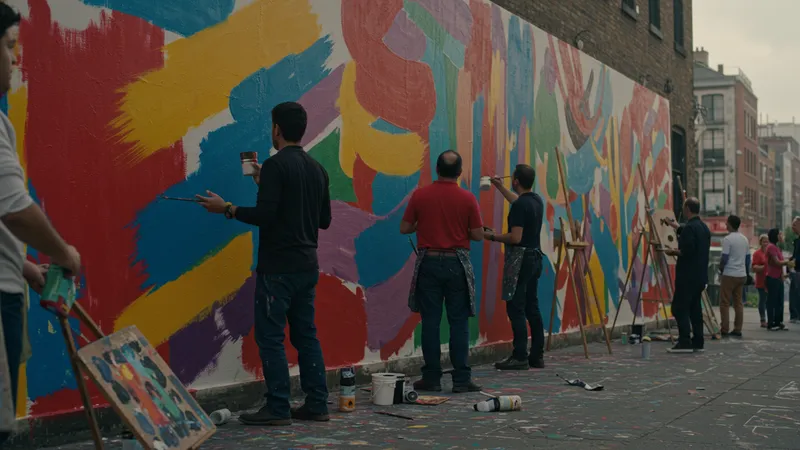
Copyright and intellectual property rights protect creators, ensuring that they reaping the benefits of their innovation and effort. These liberties build a protective wall against infringement while encouraging new artistic endeavors to thrive.
The liberty to cultural cross-pollination promotes the exchange of artistic styles and techniques across borders, encouraging the emergence of novel art forms. This boils down to a global artistic dialogue that sustains cultural and artistic evolution.
These diverse creative liberties lead to movements that disrupt traditional paradigms, blending art and activism. The result is a kaleidoscope of influences sparking societal dialogues that matter profoundly. Indeed, in the hands of the artist, liberties paint the future in ever-bolder colors…
As custodians of truth, media professionals have liberties integral to our communicative landscape. Freedom of the press is a foundational right that fosters accountability, transparency, and public engagement. It ensures that the voices challenging authority reach broad audiences.
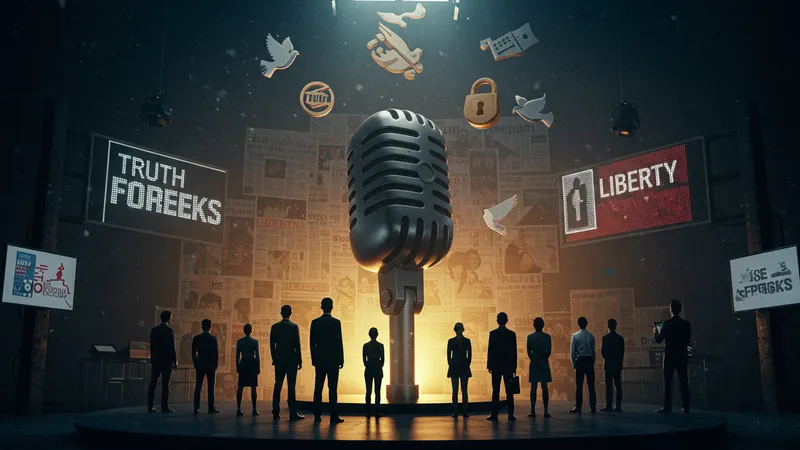
Defining these liberties involves more than reporting; it includes the right to confidentiality of sources, safeguarding journalists while fueling public trust. This behind-the-scenes liberty fortifies the scaffolding of journalism's integrity.
Digital journalism presents modern liberties, such as the right to participate in citizen journalism and the evolution of personal media. With the rise of blogs, podcasts, and vlogs, media creation is decentralized—where everyone has the potential to broadcast narratives globally.
In wading these waters, freedom of speech fuels conversations—controversial as they may be—that enrich societal understanding. These liberties balance responsibility with expression, championing the dissemination of ideas as the backbone of democratic discourse…
Championing liberties isn't just about knowing your rights; it’s about weaving them into the daily fabric of life and asserting them confidently. As we unravel more threads in this vast tapestry, a remarkable revelation emerges—these liberties, once seen as fixed, are in constant evolution, adapting to our collective societal norms and technological strides. The final chapters of this unfolding story will definably shape how we perceive and act upon our rights. Share this article to ignite conversations beyond the page. Let's champion our liberties, turning them into catalysts for positive change!